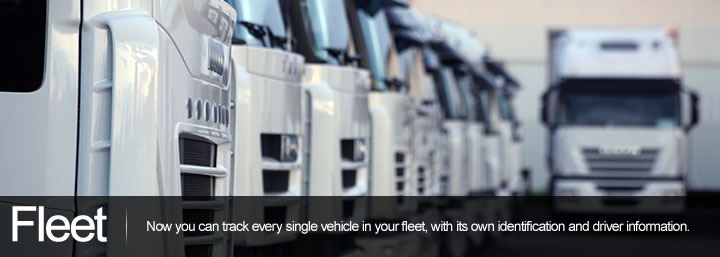
Our GPS Fleet Tracking Systems save your business time and while money, and help you manage your important assets, including materials, employees, and vehicles. Fleet Tracking lets you effectively monitor and manage your entire fleet from a single computer. This helps your business increase efficiency, decrease extraneous costs such as extra fuel or idle time, and improve its bottom-line.
Case Study:
Small Business & Enterprise In March, 2008, the Aberdeen Group published a study on how fleet management impacts both small and large businesses. The report is titled "Improving Productivity and Profitability through Service Fleet Management". What they found was that small businesses are much more likely to benefit and do so by a greater margin that larger businesses.
In the report, businesses were grouped together based on the size of their fleet. The breakdown was as follows:
- 1 to 10 vehicles where characterized as “small”
- 11 to 50 as “medium-small”
- 51 to 250 as “medium”
- 251 to 1000 as “medium-large”
- More than 1000 as “large”
The report also measured the pressures that businesses cited as reasons they wanted to increase their efficiency with GPS technology. Of the reasons mentioned by small fleets, a desire to improve to improve the customer experience through improved response times was listed by 73% or participants… by far the leading response, and for obvious reasons. By improving customer experience a company hopes to generate return customers and establish a word of mouth advertising campaign, both essential for the survivability and longevity of a small business.
Other reasons businesses cited for wanting to implement some form of GPS technology were:
- Reduce service response times (57%)
- Improve customer experience (73%)
- Reduce fleet related operating costs (46%)
- Increase service related productivity (41%)
- Extend life of service vehicles (16%)
Probably the most interesting finding of the report was that "small" businesses tend to benefit more from implementing GPS technology than large businesses (fleets with more than 1000 vehicles). According to the report, small fleets saw an increase of 25% in the number of work orders completed per day after two years of GPS implementation. Large fleets only saw an increase of 8%.
Another KPI (Key Performance Indicator) that the GPS technology has improved for these businesses is the ability of technicians to arrive to the service location on time.
Small fleets have seen a 46% increase in this key metric. It is easy to see how this will result in an improved experience for the customer and solidify a business’ reputation for being punctual.
The report then goes on to make recommendations on how a company ought to proceed in implementing a GPS fleet tracking system.
These recommendations included:
- Get GPS. It works and it is relatively inexpensive to implement across any size fleet.
- Measure your process. Knowing your “as-is” condition is important for viewing the impact that GPS technology will have once it is implemented.
- Initiate employee training on improved fleet usage and maintenance. Taking a whole-fleet approach to maintenance will improve overall results and increase worker productivity, enhance fleet durability, and improve workplace communications.
- Consider implementing dynamic scheduling.
TELETrak GPS Data-Logger
- With a GPS data-logger you can place a device on the vehicle/item and it will record locations as the vehicle/item moves about an area… or around the world. You can then retrieve the device later and connect it to your PC to read the data.
- The advantage of a data logger is that you get a very detailed report at a low cost and some suppliers assess no monthly fees.

